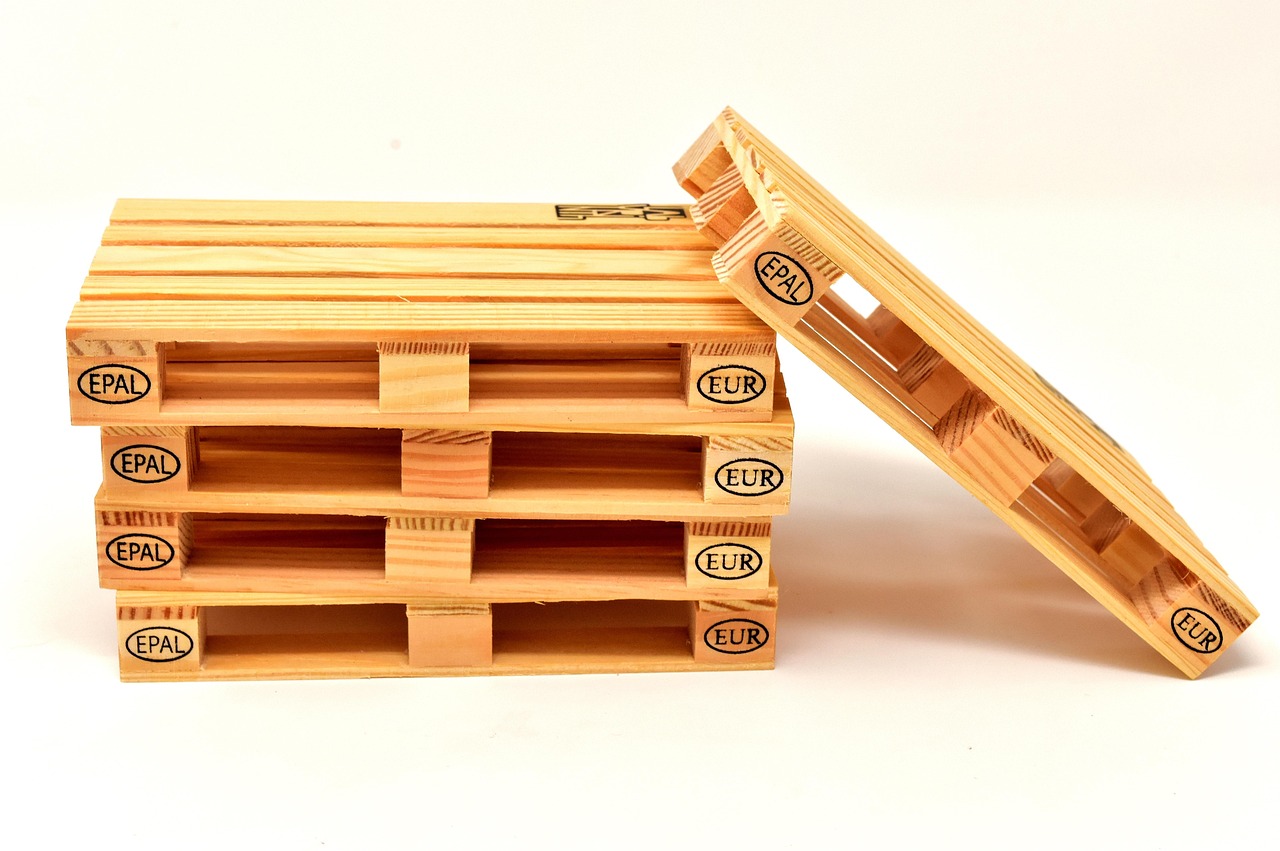Wooden pallet manufacturers produce a range of pallets designed to support various shipping and storage needs. They offer both new and recycled options, often providing heat-treated and ISPM-15-certified pallets for safe international transport. These manufacturers supply standard sizes as well as custom pallets, ensuring businesses can find solutions tailored to their specific requirements.
Many manufacturers focus on quality and durability, using different types of wood and construction methods to match light, medium, or heavy use. Their expertise allows them to balance cost-effectiveness with strength, helping reduce damage during shipping. Facilities often maintain stock to deliver pallets quickly or provide custom orders based on client specifications.
With options available locally and nationally, buyers can access reliable pallet manufacturers who combine experience with flexible services. This makes sourcing the right pallet easier for industries like logistics, warehousing, and manufacturing, where stable and sturdy pallets are critical to operations.
Types of Wooden Pallets
Wooden pallets vary by design, size, and purpose, aligning with different logistical and storage needs. Some are mass-produced to industry standards, while others are tailored for specific requirements or made from reclaimed wood to reduce costs and environmental impact.
Standard Pallets
Standard pallets are manufactured according to fixed dimensions, commonly 48 x 40 inches in the U.S. They are designed for general use in shipping, storage, and material handling across various industries. These pallets usually feature a stringer or block construction, providing consistent weight capacity and durability.
They are made from softwood or hardwood, depending on load requirements. Most standard pallets comply with ISPM-15 regulations, ensuring they are heat-treated to prevent pest infestation during international shipping. This certification is crucial for exporters.
Standard pallets are widely available and supported by major logistics companies, making them a reliable choice for businesses with straightforward supply chain demands.
Custom Pallets
Custom pallets are built to meet specific size, weight, or design requirements a standard pallet cannot fulfill. Manufacturers adjust dimensions, wood types, and construction styles to suit unique cargo or special handling conditions.
They may include features such as reinforced corners, specific load-bearing capacities, or unusual shapes to optimize space utilization. Custom pallets often support complex packaging or heavy machinery transport.
These pallets can also incorporate heat treatment or other certifications for export purposes, ensuring compliance with international regulations while meeting tailored needs. Custom manufacturing provides flexibility but typically involves longer lead times and higher costs.
Recycled Pallets
Recycled pallets are constructed using reclaimed wood from previously used pallets or other wood sources. They offer an economical solution and support sustainability goals by reducing wood waste.
Their quality varies based on the original wood and repair processes, which include replacing broken boards and reinforcing weak areas. While less uniform than new pallets, recycled pallets are suitable for non-critical or domestic shipping tasks.
They may not always meet export standards like ISPM-15 but serve well in many in-house or regional logistics operations. Businesses often choose recycled pallets when cost savings and environmental impact are priorities.
Choosing Reliable Wooden Pallets Manufacturers
Selecting a dependable wooden pallet manufacturer requires evaluating specific criteria that ensure product durability, compliance, and environmental responsibility. Key factors include understanding their production methods, verifying certification standards, and confirming sustainable sourcing and waste management.
Manufacturing Processes
The manufacturing process affects pallet strength, consistency, and suitability for various industries. Reliable manufacturers use standardized methods such as kiln drying to reduce moisture content, preventing warping and pest infestation.
Precision in cutting and assembly is crucial. High-quality manufacturers often use automated machinery for accuracy and repeatability, which reduces defects. They also offer customization options based on load capacity and dimensions to meet specific logistics needs.
Attention to material sourcing is important, with preference given to solid hardwoods or softwoods known for durability. Finally, processes should comply with international shipping regulations to avoid delays in global trade.
Quality Certifications
Certifications provide assurance of product reliability and safety compliance. Look for manufacturers with ISPM 15 certification, ensuring pallet treatment meets international phytosanitary standards, which is mandatory for exporting.
Other relevant certifications include ISO 9001 for quality management systems, and FSC (Forest Stewardship Council), indicating responsible wood sourcing. These certifications verify that manufacturers follow documented quality control procedures.
Manufacturers with audit trail transparency, third-party testing, and consistent certification renewals demonstrate a commitment to maintaining high standards rather than one-time compliance.
Sustainability Practices
Sustainability is increasingly important in pallet manufacturing. Reliable companies source wood from responsibly managed forests to prevent deforestation.
Effective practices include waste reduction through wood recycling, using offcuts for smaller products or biomass fuel. Some manufacturers implement closed-loop water and energy systems to minimize environmental impact.
Transparency in sustainability claims matters; look for detailed environmental reports or certifications like PEFC (Programme for the Endorsement of Forest Certification). These measures indicate a manufacturer’s dedication to reducing ecological footprint while maintaining product quality.


